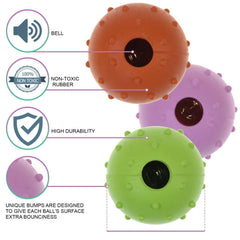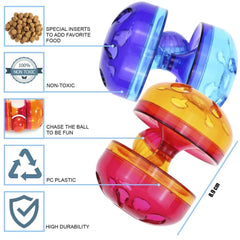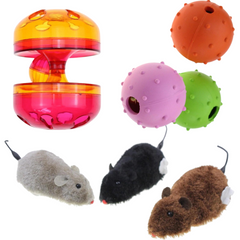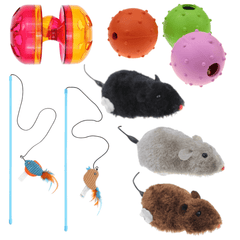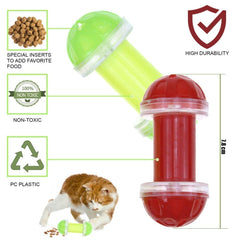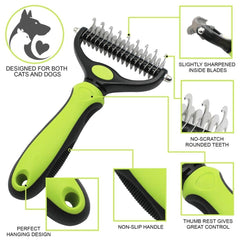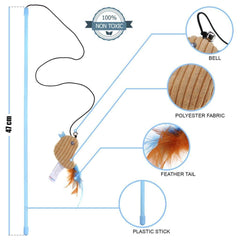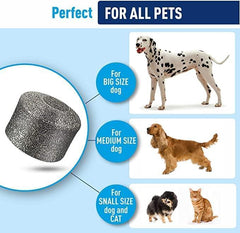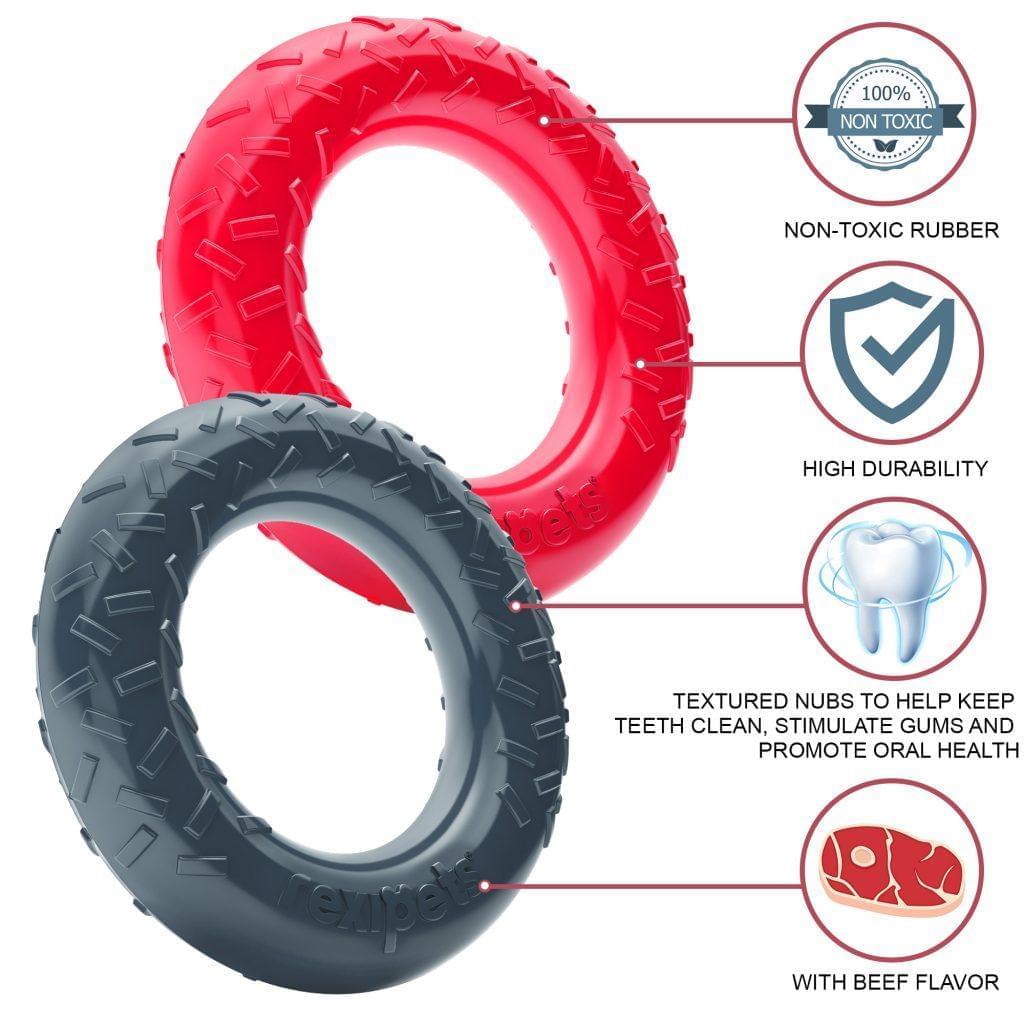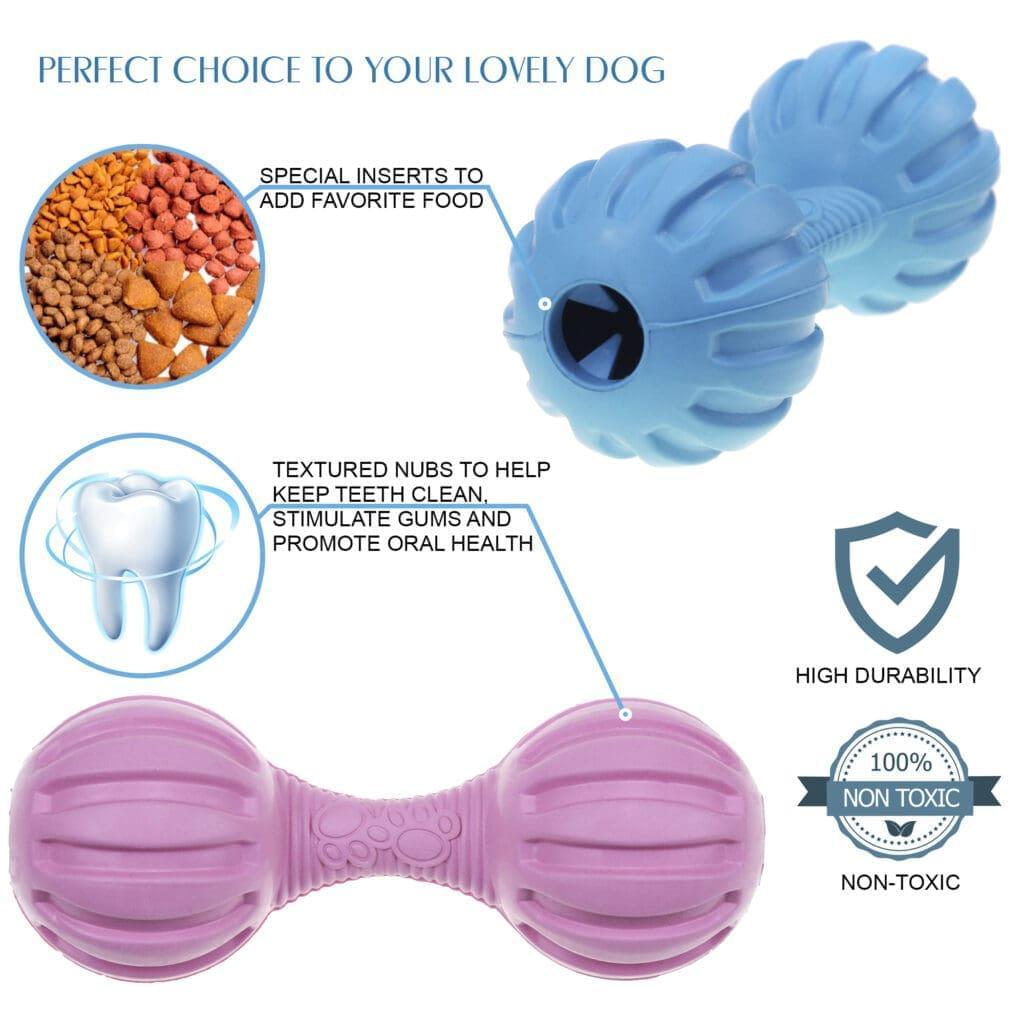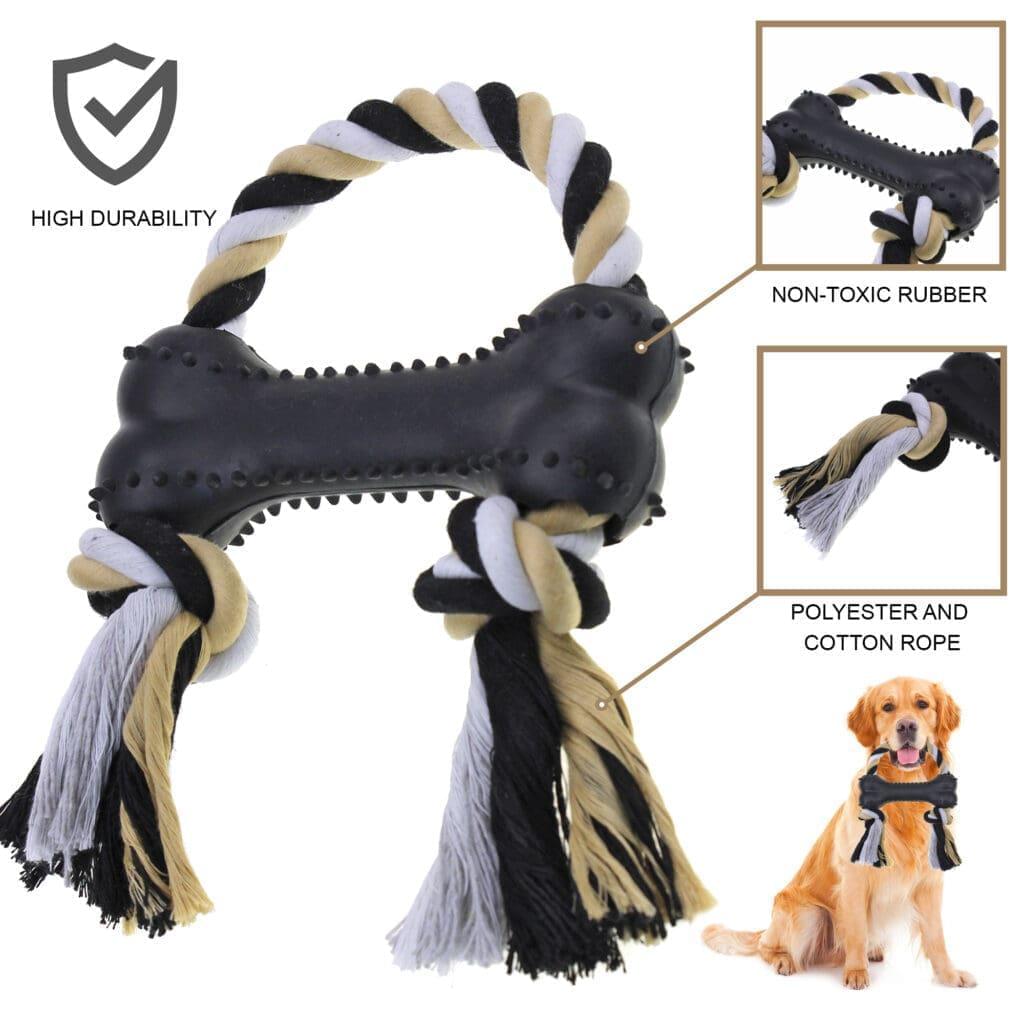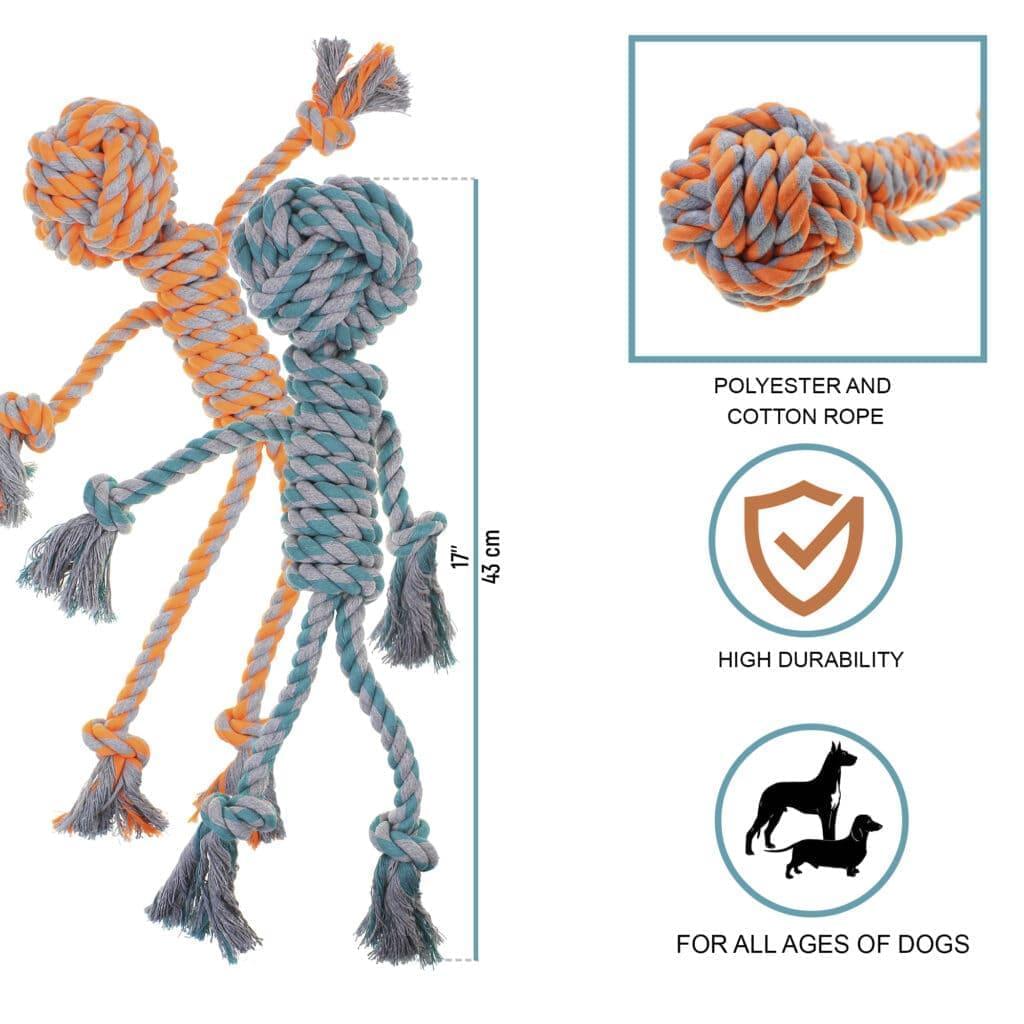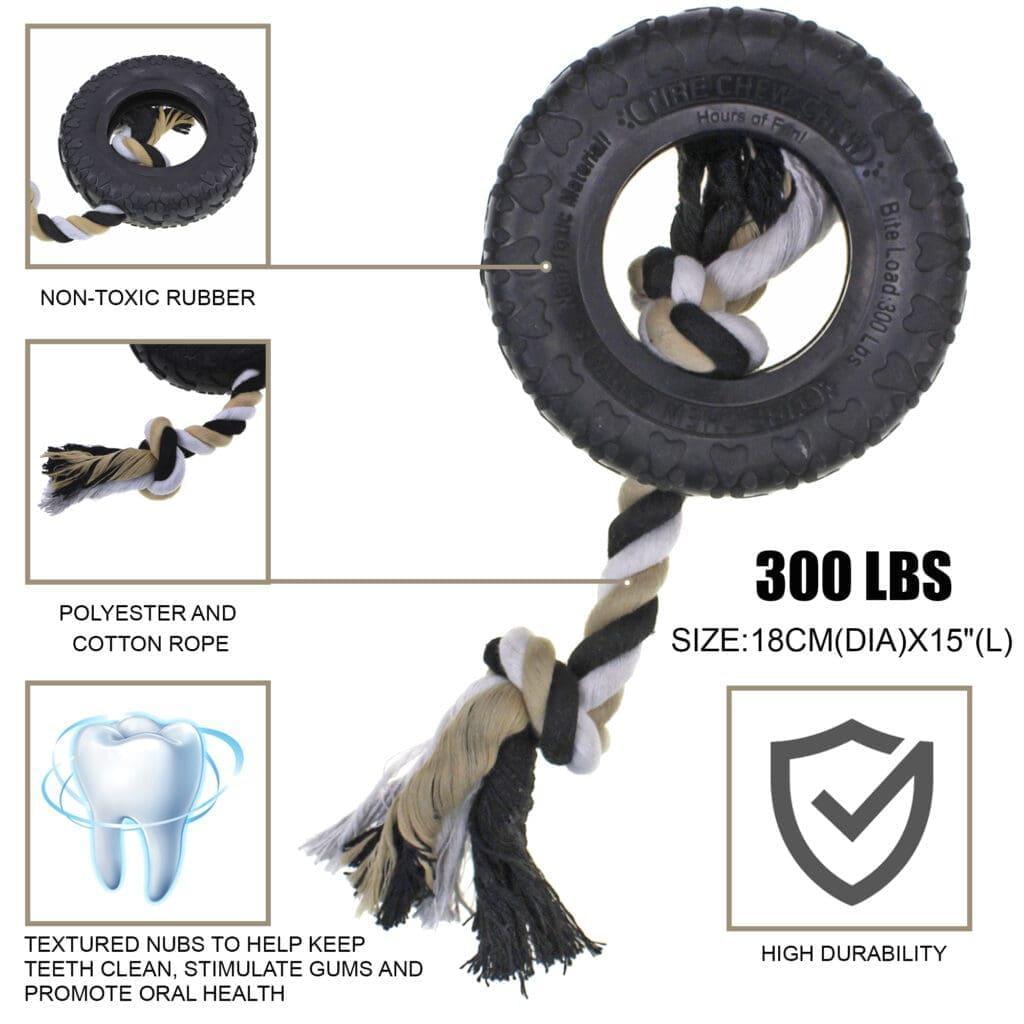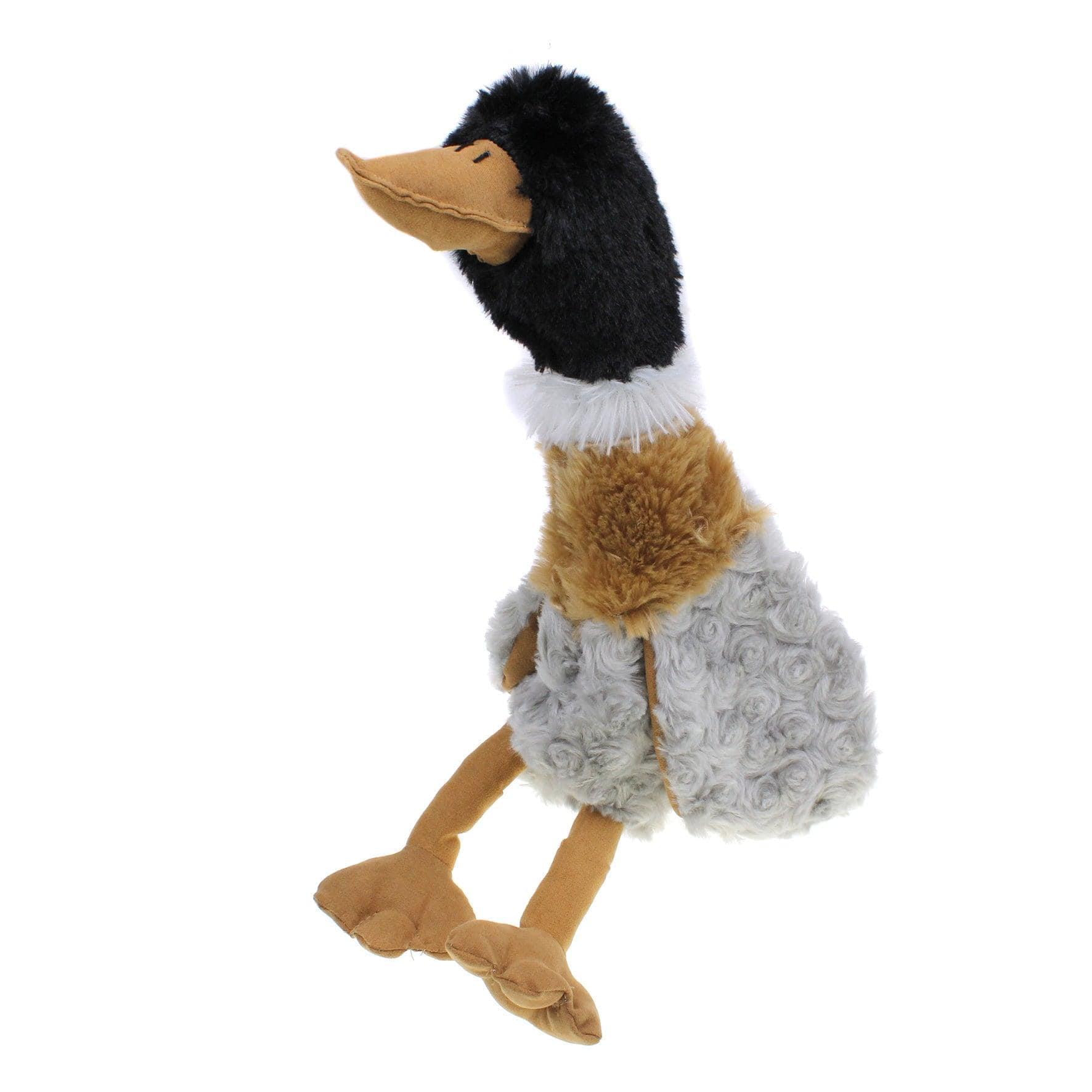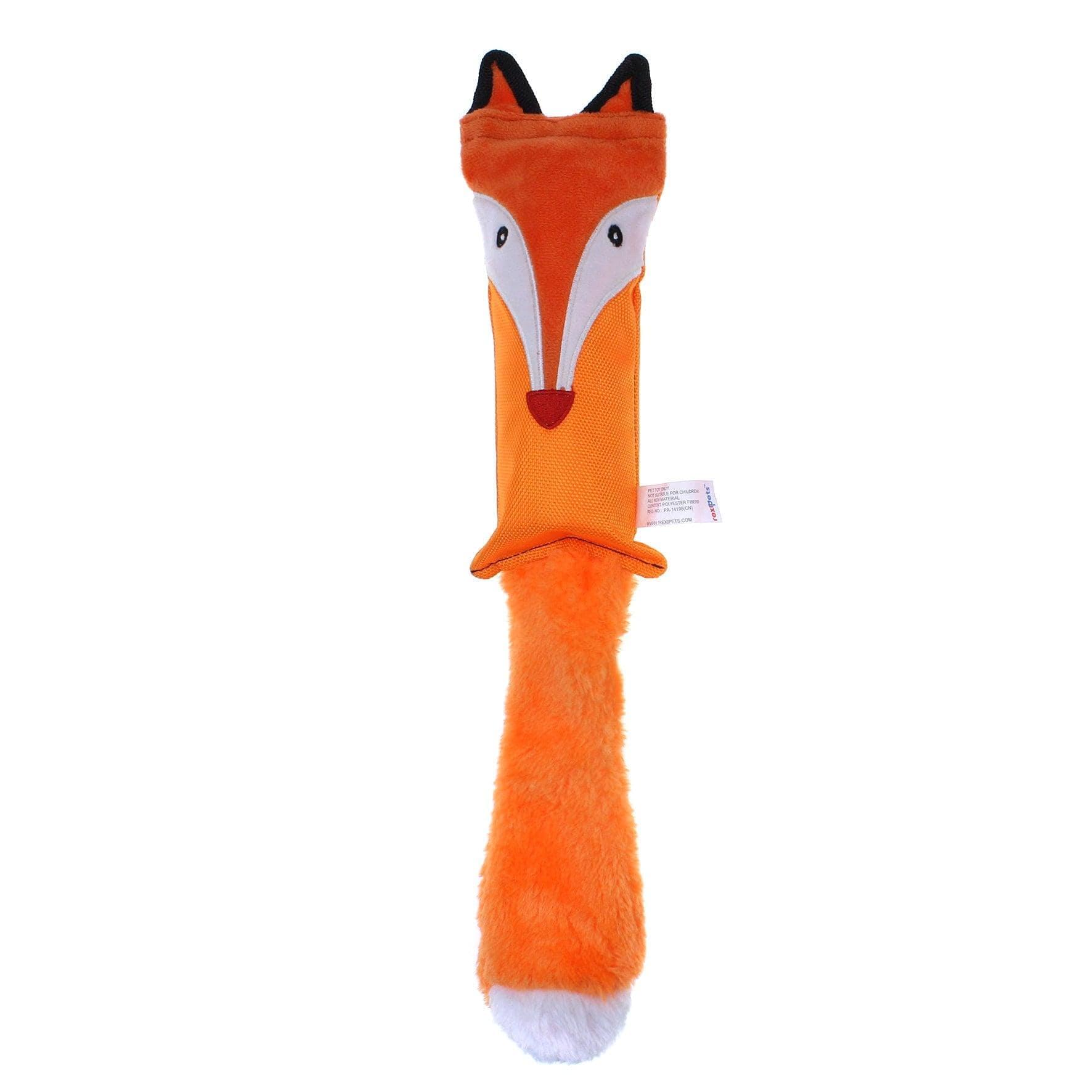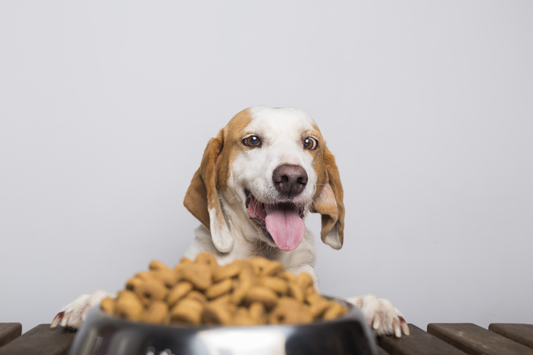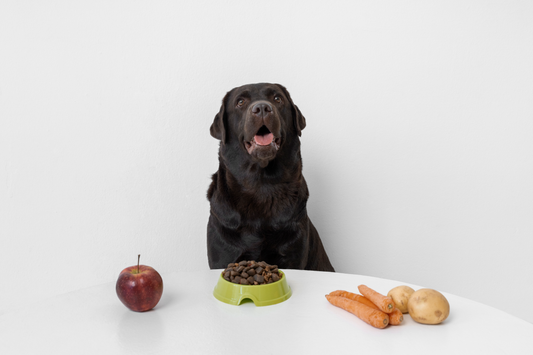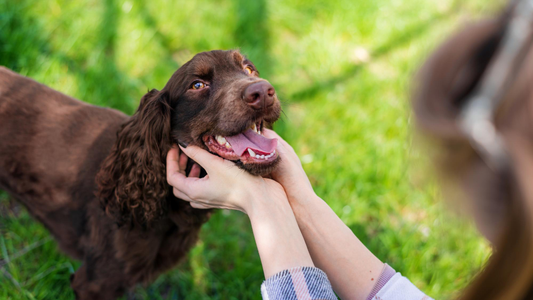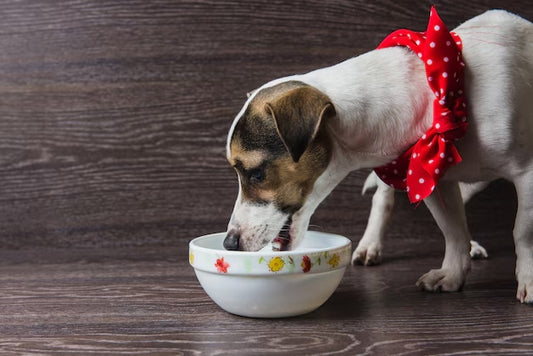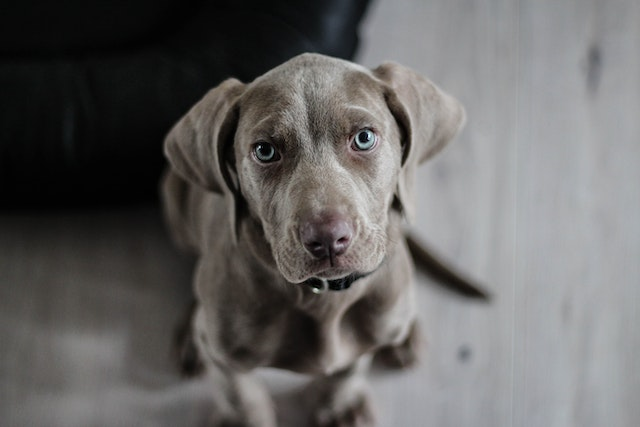
If you've stumbled upon this article, chances are you're dealing with a not-so-fun situation. Your furry friend has an upset tummy and is suffering from diarrhea. We get it. It's tough to see your loyal companion in distress.
But fear not because today, we at RexiPets are here to help you navigate through this messy situation.
Just like humans, dogs sometimes have tummy troubles that make them get loose stools. It's a common problem caused by various things, like eating something they shouldn't or having allergies or infections. But the good news is that you can often make your dog feel better by changing what they eat.
In this article, we'll explore the world of dog food and find out what's best for dogs when they have diarrhea. We'll talk about simple foods and special doggy meals to help you pick the right one for your pet.
By the time you're done reading this article, you'll know how to make your dog's belly feel better, and they'll be back to their happy, playful self in no time!
So, without further ado, let's jump right in!
Can Diarrhea Be An Emergency?

Not all instances of doggie diarrhea call for a visit to the veterinarian's office.
Sometimes, you can manage your pet's upset stomach at home with a simple change in their diet. However, it's crucial to know when dog diarrhea is an emergency.
Suppose your dog is experiencing diarrhea accompanied by any of the following symptoms. In that case, it's a clear indicator that you should reach out to your vet without delay:
-
Vomiting
When your dog is experiencing diarrhea and vomiting, it's a significant concern. Vomiting means there might be a bigger tummy problem, which could make your dog very sick. You should contact the vet immediately to ensure your dog gets better.
-
Bloody or Coffee Ground-Like Diarrhea
If your dog's poop looks bloody or like coffee grounds, that's not normal. It's a sign of a serious problem in their tummy or intestines.
You should act fast and contact your vet, because this unusual color could mean something really bad is going on and your dog needs help.
-
Fever
If your dog has a fever, it means their body temperature is higher than it should be. This could be a sign of a more severe problem inside their body, like an infection or inflammation.
Dogs don't get fevers for no reason, and paired with diarrhea, it's essential to take it seriously. A vet can help figure out what's causing the fever and provide the right treatment to get your furry friend feeling better.
Don't wait if you notice a fever; it's a clear signal that something's not right.
-
Loss of appetite
When your dog suddenly refuses to eat, it's a reason to worry. Dogs are usually enthusiastic eaters. So, a loss of appetite could indicate an underlying health issue. It's essential to address this concern promptly to ensure your pet's well-being and identify any potential problems.
-
Unhealthy coat
Your dog's coat is a reflection of their overall health. When you notice a rough or lackluster coat, it's a sign that something might be wrong.
-
Fatigue
Extreme weakness or fatigue is another red flag, along with diarrhea, that should not be ignored. Dogs are naturally active and energetic animals, so any unusual tiredness or weakness can signal an underlying problem. It might be related to an illness, pain, or discomfort.
-
Dehydration
Dehydration can result from vomiting and diarrhea. And it can result in severe complications if left untreated.
Dry or pale gums and skin that doesn't return to its normal position when gently pinched are indicators of dehydration. It's crucial to address any signs of dehydration promptly.
-
Abdominal pain
The "prayer position," where your dog puts their front legs and head down with their rear end in the air, is a classic sign of abdominal pain. It's essential to seek veterinary help to identify and address the source of your dog's abdominal pain, if it is there, along with diarrhea.
Moreover, special consideration should be given to:
-
Puppies
-
Senior dogs
-
Those with incomplete vaccinations
-
Dogs with potential toxin exposure
-
Those taking new medications
-
Dogs that have preexisting health conditions, as they may require more immediate attention if they have diarrhea.
Being vigilant and responsive to these signs ensures your furry friend gets the right care for a swift recovery.
When your dog starts having diarrhea, the first thing to do is stop giving them food, treats, bones, or snacks for about 12-24 hours. This gives their stomach, digestive tract, and intestines a break to clear things out and rest.
But always make sure your dog still has enough water to drink to prevent them from getting dehydrated. It's essential for your dog's digestive system.
After 12-24 hours, you may begin feeding your a dog a bland diet. Food choices on this diet are listed below.
-
What to Feed a Dog With Diarrhea?
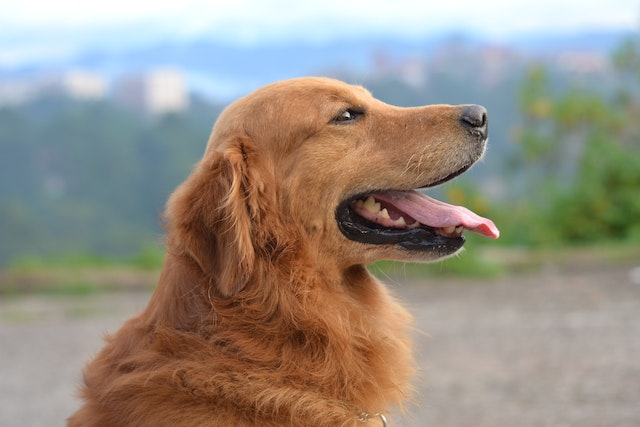
Feeding a dog with diarrhea requires special attention to help soothe their upset stomach and promote recovery. Here's a simple guide on what to feed your dog on the bland diet:
-
Lean protein
When your dog's stomach is upset, choosing protein sources that are gentle on their digestive system while still providing the necessary nutrients is essential. Opt for lean meats that are easy to digest and lower in fat content.
Consider using lean protein sources like chicken breast (skinless), lean ground beef, and turkey. To prepare these meats, cut them into small pieces, boil them until they're no longer pink, and then drain them. Avoid adding any seasonings, oil, butter, or salt.
-
White rice
When your dog's stomach is upset, providing them with easily digestible and calorie-rich options is essential for their well-being. White rice is a go-to choice due to its mild flavor, which is less likely to irritate the gastrointestinal tract.
However, it's crucial to opt for high-quality white rice and steer clear of "minute rice" or brown rice, as they may not be as gentle on your dog's tummy.
Rinse the rice thoroughly. This will help remove excess starch to prepare white rice for your furry friends. Boil the rice and serve the cooked white rice at room temperature to make it more palatable and comfortable for your dog.
-
Potatoes
Both white potatoes and sweet potatoes are suitable sources of starch for dogs with diarrhea. They are known for being gentle on the stomach.
However, it's essential to remember that serving dogs raw potato is a no-go. This is because raw potatoes contain solanine, a potentially harmful compound that can be toxic to dogs. Cooking the potatoes is a must to ensure they are safe for consumption.
To prepare potatoes for your dog, you have to begin by cutting the potatoes into bite-sized pieces. You can choose to either boil or bake the potatoes until they are fully cooked.
It's crucial to avoid frying and refrain from adding butter, seasonings, or salt to the cooked potatoes.
Baking the potatoes is a particularly wise choice as it helps reduce the levels of solanine, making them a safe and nutritious option for your canine companion.
-
Canned pumpkin
Plain canned pumpkin can be a valuable resource for dogs dealing with diarrhea, thanks to its rich fiber content, which plays a crucial role in regulating the digestive system. Pumpkin's unique combination of soluble and insoluble fiber makes it a versatile remedy for both diarrhea and constipation in dogs.
It's essential to distinguish plain canned pumpkin from pumpkin pie filling, which may appear similar but differ significantly.
Pumpkin pie filling often contains additives, spices, sugars, and occasionally Xylitol. This is a substance that can be extremely harmful to dogs.
To provide pumpkin to your dog, simply scoop out appropriate portions into their food bowl. Offering 1-3 teaspoons of pumpkin is suitable for small to medium-sized dogs.
-
Prescribed dog food
Many dog food brands make special diets for dogs with health issues like diarrhea. These diets are designed to fix the problem causing the diarrhea and usually need a vet's prescription. Some examples are Hill's Prescription Diet - Digestive Care, which calms the tummy, and Purina Pro Plan Veterinary Diets EN Gastroenteric Formula, which helps the body absorb nutrients better.
Depending on why your dog has diarrhea, they might need special food. For instance, a hypoallergenic or novel protein food could help if they have allergies. These special diets can be a vet-recommended way to manage diarrhea and related health problems in dogs, so make sure you loop your vet in.
-
Mashed carrots
Carrots are packed with essential nutrients beneficial for dogs. These vegetables are a good source of vitamin A, offer good amounts of vitamins K and C, and provide potassium and fiber, making them a valuable addition to a dog's diet. What's particularly helpful is that cooked carrots are gentle on the stomach. This can be beneficial for dogs dealing with diarrhea.
To prepare carrots for dogs with sensitive stomachs, remove the ends. You can either boil and mash them into a purée or cut them into small pieces and cook them with rice.
-
Oatmeal
Oatmeal can be a helpful food for dogs, mainly because it contains soluble fiber that's good for their digestion. This fiber slows down how fast the stomach empties and can help manage diarrhea. It's especially useful for older dogs who might have tummy troubles.
When making oatmeal for your dog, make sure it's cooked all the way through. Don't give them raw or partly cooked oatmeal, especially if they have diarrhea. Moreover, keep it plain; don't add sugar or flavors, and serve the oatmeal at room temperature so it's easy for your furry friend to eat.
-
Banana
According to Dr. Rachel Barrack, a veterinarian in New York City, bananas can be a beneficial addition to a dog's diet, particularly when they have an upset stomach. Some veterinarians also recommend sliced bananas as a healthy treat for dogs in good health.
To serve bananas to your dog, you can mash them and offer them alone or with rice. You can also slice the banana into small pieces, making it a convenient treat option for your furry friend.
-
Probiotics
Probiotics are tiny living organisms that play a helpful role in preventing harmful bacteria from growing too much in the digestive system.
Veterinarians recommend probiotics for animals to boost the presence of beneficial bacteria in the gut. It is available as a powder that can be easily sprinkled over your dog's food.
Tips for Your Dog's Diet After Diarrhea
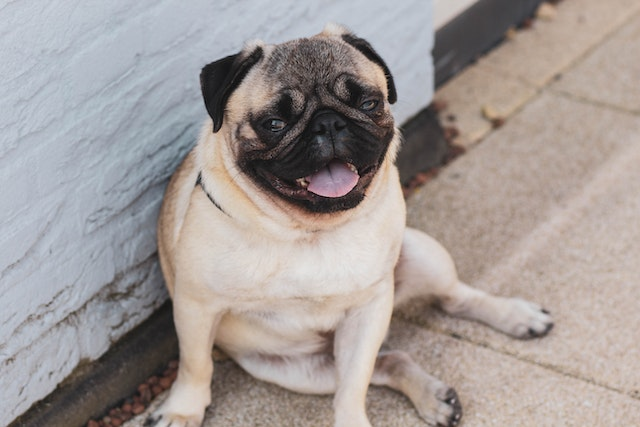
If your dog's tummy trouble gets better with 48 hours of the bland diet, you can start giving them their regular food again after 24 hours of normal poops.
But do it slowly; mix a bit of their usual food with the plain food for a couple days until they are completely back to eating their normal food.
Remember, the bland diet doesn't have all the nutrients your dog needs, so don't use it for too long. If your dog's tummy problems continue for more than 48 hours or if they have other issues, it's crucial to see the vet.
The vet can find out what's wrong and help your dog feel better with the right treatment. Don't wait too long to get help if your furry friend isn't getting better.
Final Words!
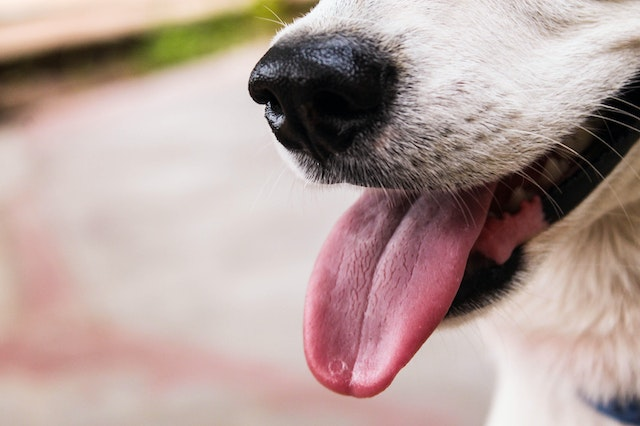
So, to sum up, helping our furry companions when they have tummy trouble is all about finding the right balance between nutrition and gentleness. The bland diet, with its simple yet effective ingredients, can be a real stomach-saver.
When it comes to assisting our furry friends with upset tummies, a bland diet can often work wonders.
Remember to keep it simple with foods like boiled chicken, rice, plain canned pumpkin, and carrots.
But don't forget, it's not a long-term solution. If your dog's diarrhea doesn't improve within 48 hours or if you spot other concerning signs like vomiting or extreme weakness, it's your cue to make a vet appointment as soon as possible.
It is important to be extremely vigilant regarding your dog's health by monitoring their symptoms and keeping an eye out for any concerning complications. Once the diarrhea resolves, you can return to your dog's regular food. Also, steer clear of food allergies in your dogs.
